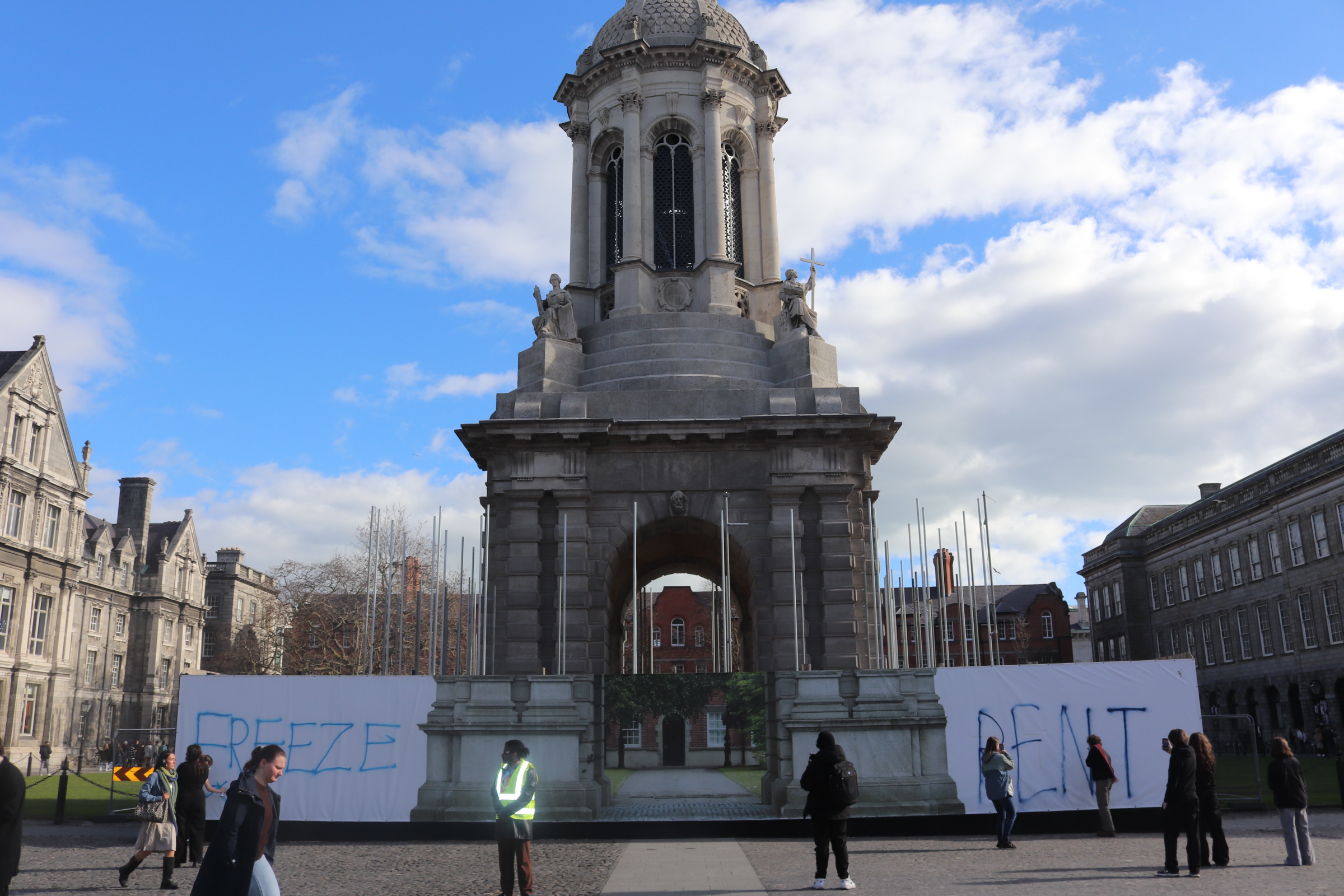 Fiona Hyde
Siren Co-Editor
Fiona Hyde
Siren Co-Editor
I am pro-choice. I should get that out of the way from the beginning. Adamantly, unreservedly and passionately I believe and trust in women and couples to choose what is best for them, for their particular set of circumstances and their lives. I don’t think there is anything better for a woman than the right to a decision she has mindfully taken for herself. However, I respect the rights of others to hold opinions different to mine, and to pursue lives promoting their beliefs. What I do not respect is the dissemination of misleading, harmful scare-mongering to the general public to further one’s religious or political agenda – and that is why I do not respect Youth Defence.
Youth Defence is an ultra-conservative Catholic organisation that agitates to keep abortion illegal in Ireland. Despite the fact that Ireland has some of the strictest laws regarding abortion in Europe, they have invested €150,000 in a nationwide advertising campaign to promote their cause. The ads are on billboards and hoardings around the country, on public transportation, and include moving images of ultrasounds in train stations. The problem with this is that their ads spread incorrect information, and serve not to protect or inform the women of Ireland, but to scare and shame them into submission. I am slow to give them more publicity than their donation money has already purchased for them, but I feel it’s of paramount importance for the people of Ireland to know that the billboards are not telling the truth about abortion.
The ads contain two lines of copy: “Abortion tears her life apart” and “There is always a better answer”. The first myth is fairly easy to debunk. One’s life being torn apart is not the only, nor even the dominant, emotional outcome of abortion. In fact, according to figures given in 2011 by the Crisis Pregnancy Agency , 87% of women who chose abortion retrospectively deemed it “the right outcome” for them. While there may be women who regret their choice to undergo abortion, they are in the minority, and their experience should not be the only one depicted on such a complex, emotive issue. Many of us know women who have decided to have an abortion, and we know that it has not torn their life apart. What message does this billboard send to them but one intended to shame? The fact of the matter is, from figures given by the Irish Family Planning Association, it is estimated that 12 women each day travel to the UK to procure an abortion. This issue affects a large percentage of our population – these women are partners, wives, sisters, friends, daughters. Youth Defence, ignoring their circumstances, would also have these women deemed criminals.
Whilst it is a difficult decision to undertake, and not one ever taken lightly, it is not the defining element of women’s lives. While Youth Defence refers to these women as “abortion survivors”, I would much rather refer to them as “women” – women who just so happen to have had an abortion. Youth Defence often cite “post abortive syndrome” as negatively affecting women for the rest of their lives, but there is little scientific or psychiatric evidence that this syndrome truly exists. As David Robert Grimes wrote in his Irish Times article last week, it is indicated by various studies that “elective abortion of an unintended pregnancy does not pose a risk to mental health” (Dr Brenda Majors). He also notes that studies have shown that “short-term guilt and sadness was far more likely if the women had a background where abortion was viewed negatively or their decisions were decried” – that is, in a country where a woman returning from the UK post-abortion will be greeted by a Youth Defence billboard in the airport.
And on whether or not “there is always a better answer” – well, if one takes into account the experiences of the women behind Termination for Medical Reasons Ireland, the grey area between the black and white given by Youth Defence comes sharply into focus. One woman, Arlette, writes about her experiences on the TFMR blog. She and her husband tried very hard for a third child, and were devastated when they discovered she was carrying a foetus with fatal abnormalities. She was told she would either miscarry, have a stillborn or that the child would survive for just days outside her womb. Despite this fact, she legally could not get an abortion in Ireland. In her account, she speaks of the “traumatic” journey to seek a legal abortion in Liverpool, and how “draining [it was] to have to leave your own country at the worst time of your life”. I cannot imagine the pain and grief her family must have gone through – and yet Arlette will see many billboards on her way to work today and the day after, telling her that there was “a better answer”. That she did not try hard enough. That she made the wrong decision.
Youth Defence rarely answer comments on their Facebook page when asked for statistics to verify that they have “saved over 100,000 babies” or, for that matter, that there is “always a better answer”. Adoption is often raised as a viable alternative to abortion, although Youth Defence will never outright say that this is the “better answer” to which they refer. It is further proof of their disingenuous methods that they fail to discuss or publicise the fact that, as of 2009, there were 5,500 Irish children in State care, with many already awaiting adoption. It is also telling that, as per this Solas newsletter printed by the group in 2008, they oppose gay adoption, thus cutting the numbers of prospective adoptive parents for these children in care significantly. (When this section of Solas was brought to Youth Defence’s attention, they quickly expunged it from the document.) Even a cursory examination of the current system of care in Ireland would reveal its many flaws, and yet Youth Defence has chosen to spend €150,000 on anti-abortion advertisements rather than drawing public attention to these facts – public awareness that would doubtless improve the lives of women who have chosen adoption.
If a woman has been raped, been a victim of incest, or is suicidal, or gravely ill, is not financially or emotionally ready for a child, or carries a foetus with a fatal abnormality it is difficult for anyone else to look her in the eye and tell her there is “a better answer” for her. If a woman chooses herself to carry on with her pregnancy despite the above circumstances, it is a strong decision for her to have taken. However, this should never be forced on her against her will. It is not right that anyone can make that choice but the pregnant woman herself. Certainly, there is no better option than whatever the pregnant woman chooses herself – be that adoption, keeping her child, or travelling for an abortion. Whatever she chooses is the best answer for her, and only she can decide what that answer is.
So, we can see that the advertisements are clearly misleading and glossing over an issue of incredible depth. In fact, even a cursory analysis of the guidelines set down by the Advertising Standards Authority of Ireland (the ASAI) reveal that Youth Defence are breaking the Code of Advertising Standards by being so misleading. Specifically, in accordance with part 2.12, there is significant division of informed opinion on the claim made in the advertisement, but billboard suggests it is unequivocally accepted that there is always a better answer, and that abortion tears her life apart, going so far as to emphasise the word “always”. It breaks 2.27 as the claims in this advertisement go beyond a statement of opinion, and they cannot be substantiated by any figures. It breaks 2.22 by exploiting possible inexperience and lack of knowledge of consumers by providing them with absolute statements about things which in reality vary from person to person. Furthermore, under part 2.29, by informing women and couples with a crisis pregnancy that there is “always” a better option, Youth Defence could be said to encourage the general public into “dangerous behaviour or unsafe practices” as the organisation advise women against having an abortion in any and all circumstances, even when their lives are at risk as a result of continuing with the pregnancy. This is misleading, disingenuous and dangerous information.
As you can see from only a partial analysis of the Code above, there are grounds for believing that Youth Defence are breaking rules about the standards of advertising to the general public. No matter one’s opinion on the issue of choice, this is now an issue of disingenuous and damaging information being spread to the general public in order to further a political agenda – something that should be universally denounced from all quarters.
The ASAI are currently through a disclaimer appearing on their complaints page declining to uphold complaints regarding Youth Defence because the billboards do not contain a “commercial” element – ie, they are not fundraising or selling anything. It seems wrong that a large-scale, well-funded and extremely visible billboard campaign around our capital city cannot be commented on by the public in an official capacity, simply because it is not attempting to sell us anything. It is only through this technicality regarding “commercial” interest and the remit of the Code that Youth Defence’s poor practice in advertising cannot be investigated by the ASAI. This is not an issue of censorship, but of an oversight in our advertising regulation.
So if the ASAI will not uphold complaints due to this loophole, where does the offended or hurt consumer go next? Complainants in the past week were told by the Department of Communications that it was not under their remit, and the Department of Health has failed to comment on the issue. A campaign of complaint was taken against the advertising companies hosting the billboards (JCDecaux and Bravo Outdoor) by the publication I co-edit, Siren, but as yet the two companies have not replied to one single email. Councillor Rebecca Moynihan attempted to raise it as an emergency motion at the Dublin City Council last night, and it was ruled out of order due to “not being in direct responsibility of the Council”. Clare Daly TD has expressed her sympathies and told a Siren reader that “submitted it to be discussed as a topical issue on a number of occasions but the Ceann Comhairle has refused to pick it”.
The closest the issue has come to any form of redress for the general public is having been raised by Ivana Bacik in the Seanad. Senator Bacik called not for censorship of the billboards, but merely for possible extension of the ASAI Code on the issue so that legitimate complaints from offended consumers could be heard out by the body. Senator Rónán Mullen replied to her concerns about the possible breach of Advertising Standards by saying he could see “nothing wrong” with the billboards and that they represented the “core reality” of abortion. It is worth mentioning that Senator Mullen made comments to families this April (families who had been through similar to Arlette, above) about them having an “agenda” when setting up Termination for Medical Reasons Ireland and in speaking to the Government about their medical experiences. It is also worth noting that Senator Mullen worked for five years in the Communications Office of the Archdiocese of Dublin, and as spokesperson for Cardinal Desmond Connell. His interests in the billboards might, then, not extend to their possible breach of Advertising Standards – or even to the genuine harm they inflict on citizens around the country – but ironically be based off his own agenda.
Youth Defence misrepresented this exchange in the Seanad in an official press release on their website referring to Bacik’s comments as “odious abuse of taxpayer-funded privilege” and “socialist censorship”. On their Facebook page, they likened the sincere efforts of Senator Bacik to that of “Joe Stalin”. However, I would strongly argue that this is not an issue of freedom of speech – freedom of expression guarantees only the right to speak, not to be listened to, not to be agreed with, not to be prevented from being challenged, and not from facing consequences when what is said causes damage to the general public. Under the Irish Constitution, Article 40.6.1° grants the right to freedom of speech subject to “public order and morality”, which Youth Defence are arguably going against. Furthermore, confusing freedom to speak with a media campaign is dangerous precedent. Pushed from pillar to post by Government bodies, most citizens, the voiceless majority, have no means to respond to or complain about public messages being displayed to them by well-funded private interest groups. Where is their freedom to respond to this harmful campaign? Freedom of speech does not function in relation to how much money one has to spread a message. Where is the official Government body dealing with the complaints of those who disagree with Youth Defence’s message?
If you disagree with the billboards – or issue of choice aside, you disagree with disingenuous advertising for political reasons – then you must use your voice now. Here is a list of all sitting Senator and TD email addresses, along with a complaint template that you can email them. Email JCDecaux and Bravo Outdoor, email the ASAI, email the Department of Health and your local Councillor. Don’t let them say, as Paul Bradford did in the Seanad last week, that he had received no complaints. Let them know that the Irish people stand against this behaviour and stand for a progressive, tolerant and empathetic Ireland.






